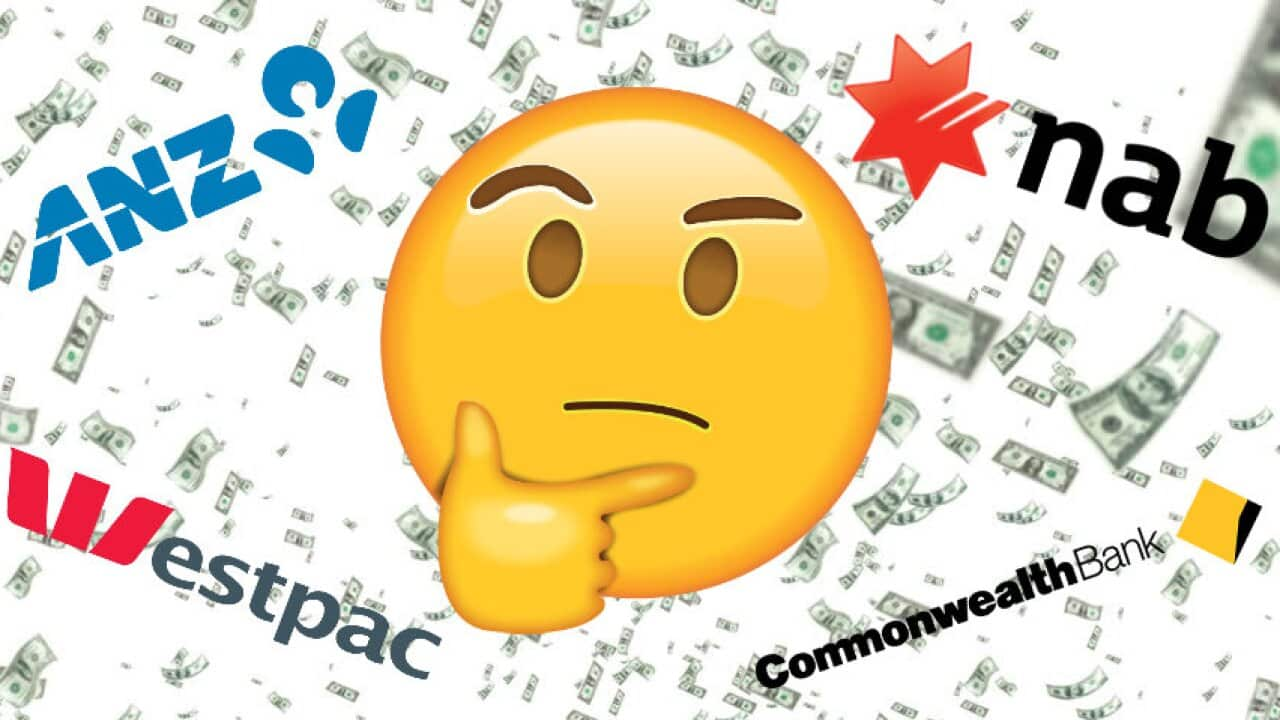The Royal Commission into Misconduct in the Banking, Superannuation and Financial Services Industry found dishonesty, greed, irresponsible lending, and the pursuit of profit above all else in the industry. The recommended a which still need to be passed by parliament.
Importantly, it found the general public don’t really know or understand what’s going on with their money.
Stockbroker Marcus Padley went as far to say on ABC breakfast television that financial institutions and leaders can’t “hold everybody’s hands like a little baby because they don’t understand”.
Marcus Padley chatting to ABC News Breakfast, 5/2/19
The Australian Securities Investment Commission’s (ASIC) Senior Executive Leader of Financial Capability Laura Higgins didn’t put it quite so bluntly to The Feed.
I think in general the royal commission has highlighted to consumers the need to engage in their finances and in the details of their finances.
TIME TO TALK ABOUT YOUR FINANCES
Laura stresses that talking more about money is the first step.
“The more we talk about money, the more we talk about successes and failures, the more we learn from that space,” she said.
When you're making any financial decision Laura says you need to ask questions and talk to people. Whether that’s sorting out your super, or deciding whether to buy the insurance the car salesman has offered you.
“There is value in normalising those conversations...It’s about being confident about seeking out advice and answers.”
dedicated to financial literacy – from how to save money in banking fees and charges, to paying off a credit card and building wealth. There are also budgeting calculators on the site and how to find your lost money (yes, Australians have $1.1 billion dollars in lost shares, bank accounts and life insurance). ASIC’s resources are translated in dozens of languages.
'DON'T BE SO NAIVE'
Financial counsellor at Good Shepherd Microfinance Graeme Parsons says part of the problem is cultural. It may seem obvious but he says you don’t have to be loyal to your banks.
“Australians don’t like to disappoint people,” he said.
Often people will say ‘I’ve been a good customer’, and I listen to that and say ‘don’t be so naive’
Shop around for the best interest rates for your savings, know where your super is and if you’re in debt - ask for advice.
Graeme says not reaching out for help can be financially dangerous.
“It’s not just single pensioners, it’s 45 year old single mothers with three kids, for example. They’re isolated because they can’t have discussions with people about their financial situation and come up with a plan.
“Instead many understandably, turn to unscrupulous lenders and people who say they can provide easy solutions.”
He wants us to talk about money more - even brag to our mates about the cash we’ve saved - and shop around for good deals.
“We need to need to have more open and honest discussions about financial stress and savings habits.”
EMERGENCY FUNDS KEY
The founder of finance education service Paridhi Jain says many of us are convinced managing our finances is too hard.
“We hand over our power to somebody else, because we assume it’s too complicated.”
Paridhi says this has to stop and there are simple things we can do to sort out our finances. One is creating a buffer.
An emergency fund is the biggest thing we encourage people to set up
"Working towards having a three month emergency fund is key to avoiding a reliance on credit cards or personal loans to get through times of crisis. This adds a lot of stability and peace of mind," she said.
Paridi suggests you can start small by putting away a portion of your income each month - this will help you from being financially vulnerable. She says ASIC's Money Smart website is a good, reliable source of information, while the could be a good resource for those struggling to get out of debt.
This hotline will hook you up with financial counselling if you are in real strife with your money. It’s a non-profit organisation, and they say their financial counsellors offer free, confidential and independent support. They are different from financial advisors or financial planning - which often involve ongoing fees for services and investment advice.
Other experts The Feed spoke with suggested getting your hands on Scott Pape’s . It’s an easy to digest ‘how-to’ guide on finance and growing your wealth. He’s sold over a million copies - it goes through how to effectively save, manage your super and invest. He’s also very scathing of financial institutions, which is very on trend.
Rich Dad Poor Dad is also a favourite. Written more than twenty years ago, this book by Robert Kiyosaki and Sharon Lechter is popular worldwide. It walks you through the importance of financial literacy and how best to work the system to work for you.



